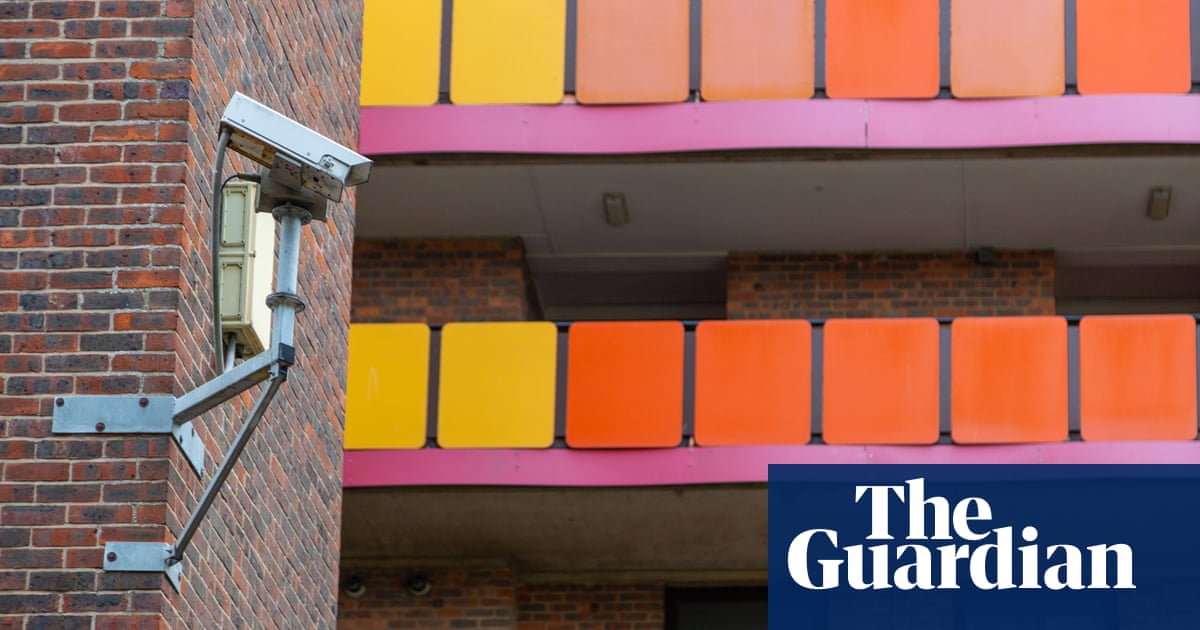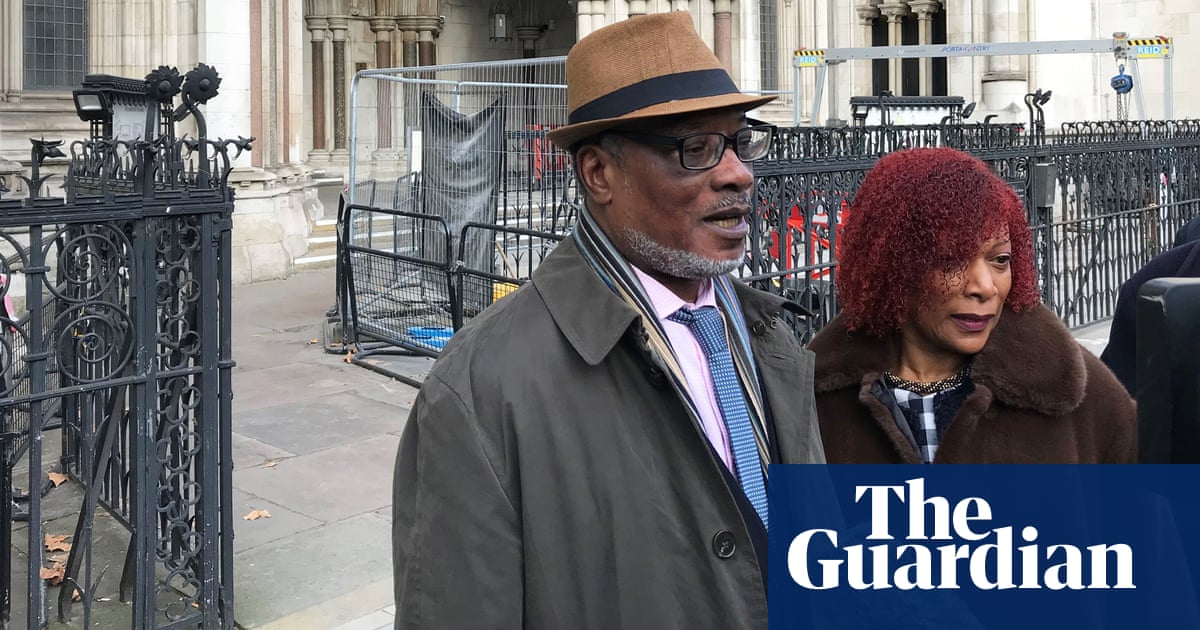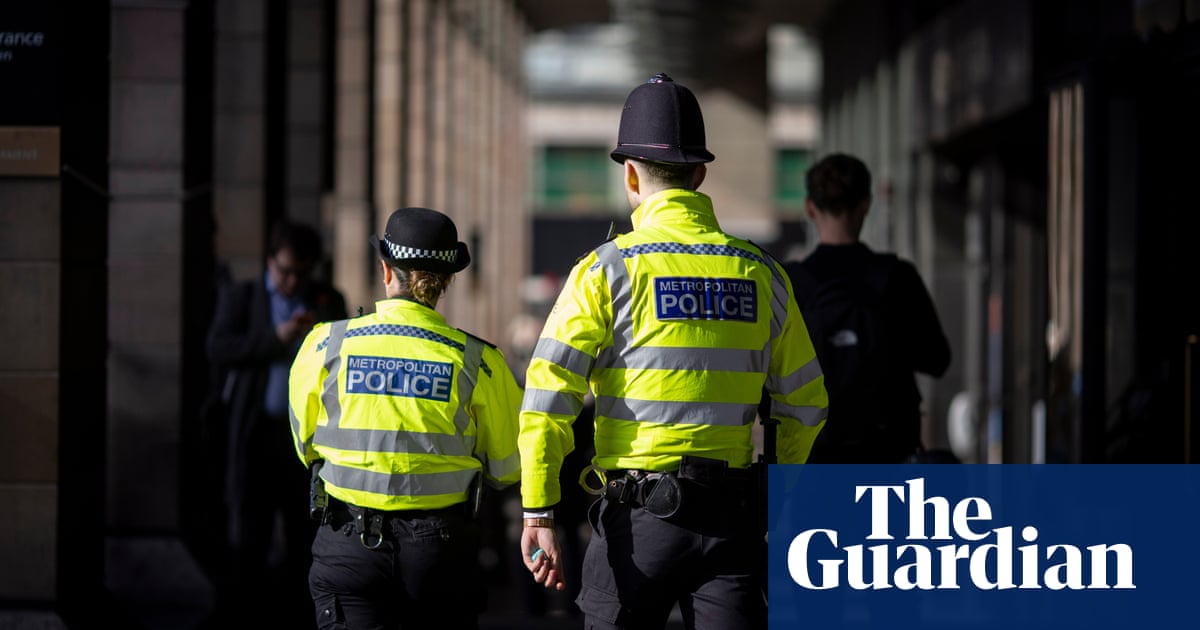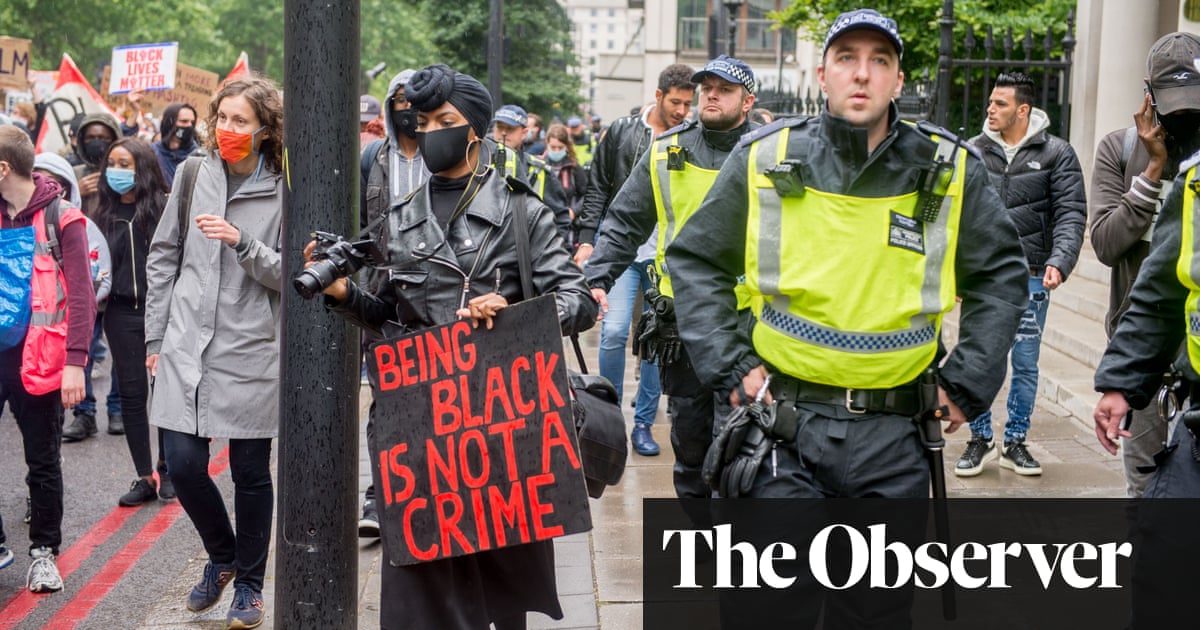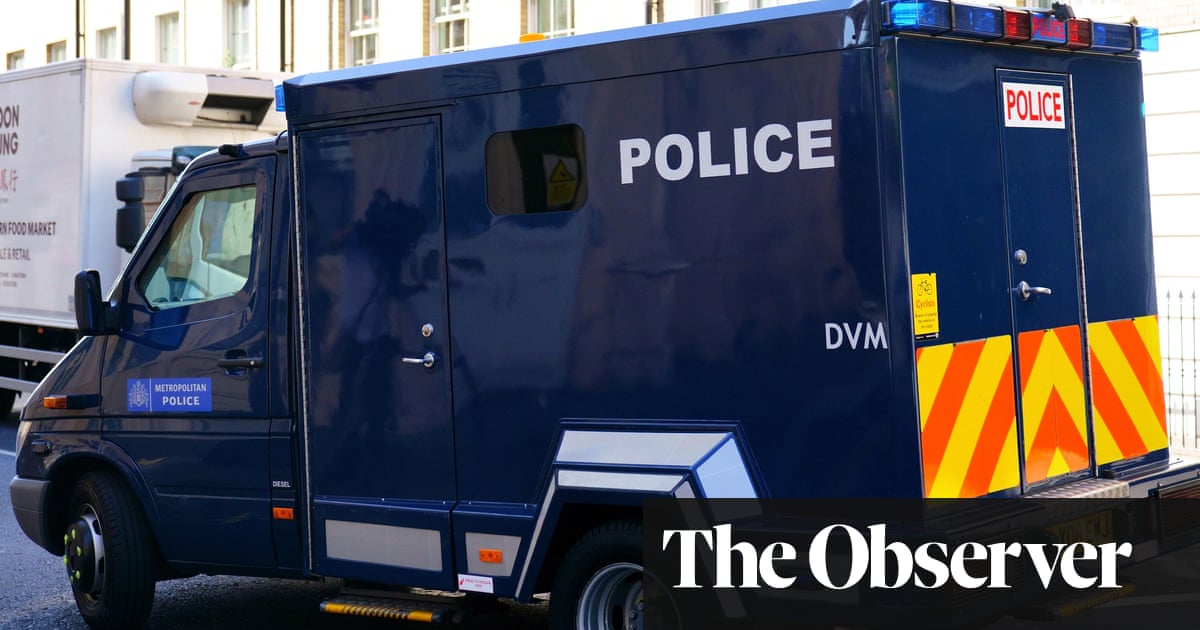
Police across England and Wales face an inquiry to establish whether they racially discriminate against ethnic minorities in their use of force and stop and search, the Guardian has learned.
The Independent Office for Police Conduct (IOPC) says it will use its formal powers to investigate cases and then look if any pattern of racial discrimination exists. It has vowed it can “drive real change in policing practice”.
The review comes as forces are under pressure to justify their use of stop and search after a series of high-profile cases that have been caught on camera. The Met police commissioner, Cressida Dick, apologised on Wednesday for distress caused to the British athlete Bianca Williams when officers stopped, searched and handcuffed her and her partner in west London at the weekend.
Several key indicators show police powers in England and Wales are used disproportionately against black, Asian and minority ethnic (BAME) people. Stop and search is nine times more likely to be used against black people, and Taser use almost eight times more likely.
Police deny that ongoing racial bias is a reason. The IOPC inquiry could be one of the most significant examinations of police and race since the Macpherson inquiry in 1999 found the police to be institutionally racist.
The IOPC will also examine whether BAME people are being failed as victims of crime. One case examined for evidence of bias will be that of sisters Nicole Smallman, 27, and Bibaa Henry, 46, who were found stabbed to death in Fryent country park in north-west London last month. Two officers have been arrested over claims that “selfies” were taken showing bodies at the crime scene.
Since the police killing in the US of George Floyd in May, more than 220,000 Black Lives Matter (BLM) protesters have taken to the streets in the UK, in part angered by alleged British police racial bias.
The IOPC says public confidence is jeopardised by the continued claims of prejudice in the ranks, two decades after police promises to stamp it out following the Macpherson inquiry.
The Met receives more than 250 complaints alleging racism on average each year and less than 1% are upheld. Figures from the London mayor’s office of policing and crime show that between 2017 and 2019, 816 complaints of racial discrimination were examined. Two each year were recorded as upheld, a total of six over the three years, or 0.7%. Fifty-nine per cent were rejected, others were dealt with via different methods, and 68 complaints from 2019 are outstanding.
The Met said it received one complaint for every 319 searches it carried out. Amanda Pearson, a deputy assistant commissioner, argued that young black men were disproportionately likely to be both the victims and perpetrators of violent crime.
She said: “Stop and search is a tool we can use in order to prevent violent crime … When we look at the victims and perpetrators of violent crime they are over-represented by predominantly young black males.
“Even just taking one machete off the street might prevent another homicide, and therefore that link – between what the demographic of those people who are victims and perpetrators of homicide – obviously then there is a link between that and those people who may be subject to stop and search given the information and intelligence we have on them.”
Pearson said officers were concentrated in areas of highest crime, stopping people based on reasonable suspicion rather than skin colour. “There [are] areas that we are going into, they are disproportionately more diverse than the other areas in terms of where policing takes place. Therefore stop and search will have a disproportionate effect on the people who are living in those areas.”
The latest stop and search figures for the Met show a fall in June after an eight-year high of 43,000 stops in May. The force’s figures for last year show more black people, who make up 12% of London’s population, being stopped than white people, who make up 59%.
The Met says the proportion of stops where something is found is broadly similar for each ethnic group. The force says this is a better measure of racial fairness. In the 12 months to 31 May, the Met says “the four main ethnic groups all showed very close positive outcome rates”, which were white 24%,black 21% and Asian 22%.
The IOPC director general, Michael Lockwood, confirmed its examination of race and policing and said: “Evidence of disproportionality in the use of police powers has long been a concern which impacts on confidence in policing, particularly in the BAME communities. We still need to better understand the causes and what can and should be done to address this.”
The watchdog said it would look for “trends and patterns which might help drive real change” and “investigat[e] more cases where racial discrimination may be a factor in order to develop a body of evidence to identify systemic issues which should be addressed”. The IOPC said it would not shy away from any conclusion if it found evidence to support it, including that systemic racism was at play.
Race has been a troubled area for the IOPC, which was set up in 2018 to replace the Independent Police Complaints Commission. Some in policing feel the watchdog is too eager to hunt for police scalps.
The civil rights campaigner Stafford Scott criticised its race record. “They lack the skills, expertise and desire needed to address racial discrimination internally, much less within the police. This is why the police feel that they can get away with the overtly racist policing that we are witnessing across the country today,” he said.
Scott’s brother Millard, 62, was Tasered in his north London home this year by police searching for a suspect. Millard Scott’s son, the rapper Wretch 32, posted footage of the incident last month, which is being investigated by the IOPC.
Lockwood said: “Increasing our focus on investigating cases where racial discrimination may be a factor means we will be able to really look at these encounters between the police and the public to identify any emerging themes. We can then see if there is a need to change policing policy or practice.”
The race inquiry will be based on evidence the IOPC gathers from new and current cases where race discrimination may be a factor, and look for common themes. It will formally begin in the autumn.




